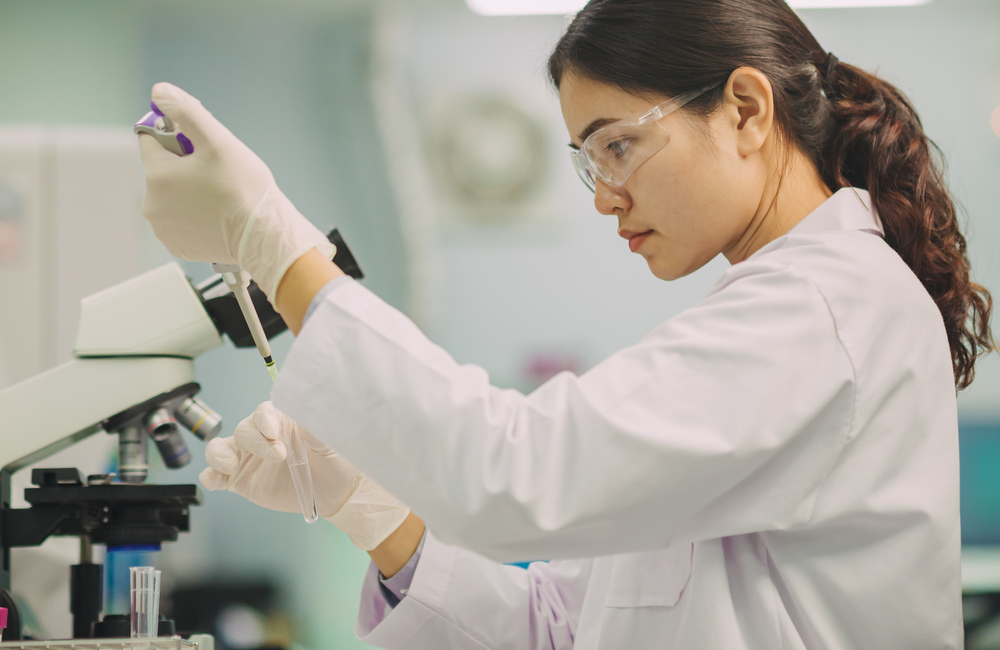Earning a two-year degree can start you on an exciting path as a Medical Laboratory Technician (MLT), where you use both science and modern technology to help doctors make better diagnoses. If you’re looking to deepen your skills and take on more complex tasks, pursuing a four-year Medical Laboratory Science (MLS) degree is the next step. This degree prepares you to work as a technologist, opening doors to perform advanced lab tests and improve your chances for career advancement.
The bridge from MLT to MLS is popular for those in the lab tech field. NMU Global Campus offers a specially designed online bachelor’s degree program for this transition. It’s perfect for working technicians because it lets you fit your classes around your busy work schedule and personal life.
While technicians have a solid foundation in lab subjects, earning an MLS degree allows you to develop a more in-depth understanding of clinical training and lab concepts. This greater expertise significantly increases your opportunities for moving up to higher-level positions, such as lab supervisor or manager.
Rising Demand and Salaries for Medical Laboratory Technologists
One of the reasons laboratory professionals seek a higher degree is to advance their careers in a rapidly growing field. The U.S. Bureau of Labor Statistics (BLS) projects an 5% increase in both technicians and technologists by 2032.
Technologists tend to earn higher salaries than technicians. The BLS reports the average medical laboratory technologist salary as $60,780, but the data includes technician salaries. Salary.com reports the average annual salary of technologists alone at $77,339.
This growing demand is partly driven by the United States’ aging population, which requires more diagnostic tests for accurate disease identification. Common tests include those for detecting cancer or type 2 diabetes. Prenatal testing is also frequent, primarily used to look for signs of genetic conditions. This increased need for diagnostic accuracy underlines the importance and value of advanced training and education in the field.
Job Duties for Medical Laboratory Technologists
Versatile Sample Handling
Medical laboratory technologists are adept at handling a wide variety of samples, including blood, urine, stool, and tissue.
Diverse Testing Techniques
They utilize a range of testing methods such as bacteriological, chemical, hematological, immunologic, and microscopic examinations to analyze samples accurately.
Precision Analysis with Advanced Equipment
Equipped with state-of-the-art laboratory equipment, these skilled professionals meticulously analyze samples to detect diseases with precision.
Crucial Role in Diagnosis and Treatment
Their accurate test results are essential for healthcare providers to make informed decisions about patient care and treatment plans.
Maintenance of Laboratory Equipment
Medical laboratory technologists ensure that all instruments are in optimal working condition, contributing to the reliability of test outcomes and the smooth operation of the laboratory.
Indispensable Contributions to Healthcare
Through their dedication and expertise, medical laboratory technologists play a vital role in ensuring accurate diagnoses and effective treatment strategies for patients, making them indispensable assets to the medical field.
Medical Laboratory Technologist Jobs
Professionals with a Medical Laboratory Science (MLS) degree often perform more advanced tasks than technicians, including preparing specimens and conducting intricate tests. Medical laboratory technologists can pursue several specializations:
- Blood bank technologists: These professionals are vital in the collection and management of blood donations. They carefully type and cross-match blood to ensure compatibility for transfusions, playing a crucial role in emergency and surgical care.
- Clinical chemistry technologists: Tasked with analyzing the chemical and hormonal contents of body fluids, these technologists use a variety of tests to detect imbalances that can indicate disorders such as diabetes, kidney disease, and hormonal imbalances.
- Cytotechnologists: These specialists focus on studying cell samples under the microscope to identify structural changes that may suggest cancerous or precancerous conditions. Their work is critical in the early detection and diagnosis of cancer.
- Immunology technologists: They examine how the immune system responds to pathogens by studying blood and other body fluids. Their findings help diagnose autoimmune diseases, allergies, and other immune responses.
- Microbiology technologists: Focusing on microorganisms like bacteria, viruses, and fungi, these technologists identify pathogens and determine their susceptibility to antibiotics. This is crucial for infection control and effective treatment planning.
- Molecular biology technologists: They perform sophisticated tests on molecules such as DNA and proteins to diagnose genetic disorders, identify infectious agents, and provide data for research and treatment development.
Technicians who advance their education through an MLT to MLS program can access these specialized fields. Moreover, those who earn a bachelor’s degree in medical laboratory science are well-positioned to take on supervisory roles, overseeing both technicians and other technologists in laboratory settings.
Why Choose the NMU MLT to MLS Program?
If you’re a working lab professional looking to take your career to the next level, Northern Michigan University’s MLT to MLS online bachelor’s degree program could be the perfect fit. This program blends advanced clinical laboratory science education with leadership training, all tailored to help you step into management roles. And the best part? You can complete it online in just two years, without having to leave your current job.
With its NAACLS accreditation and impressive outcomes, such as nearly 100% job placement and over 95% pass rates on national certification exams, NMU’s program is not just a course—it’s a gateway to greater opportunities in the laboratory science field. Whether you’re aiming for higher pay, more responsibility, or a supervisory role, NMU’s MLT to MLS program can help you get there.







